Mainstreaming such centres into the formal education sector (whether they remain privately-owned or become government-funded) would mean that the centres will be supervised by the government,
From results gathered from interviews and dialogue with various stakeholders on the state of education in Nigeria, we observed that many informal education and instruction centres and groups exist on the fringes particularly in low-income settlements and communities. Visits to some children’s (motherless) homes also revealed that some of the homes operate sub-standard educational instruction centres.
Such centres largely exist outside the formal school system and often have limited capacity, but they provide basic education services to the communities. The role of EduTrust Foundation in this regard is to support such centres, first by bringing their existence, efforts, success stories and needs to the attention of relevant education regulatory agency, and then taking steps to get them accredited or mainstreamed where appropriate.
Mainstreaming such centres into the formal education sector (whether they remain privately-owned or become government-funded) would mean that the centres will be supervised by the government, that they can enjoy the financial and facility support of government, or get accredited teachers posted to the centres.
Actions that may be supported as part of mainstreaming include:
Prior to mainstreaming, upgrading of capacity, facilities or services may be required in order to enable the centres satisfy basic conditions for teaching and learning. Informal schools or education centres may be adopted before mainstreaming, or mainstreamed before adoption.

4 Agatu Street, off Gimbiya Street,
Area 11, Garki, Abuja, Nigeria.
By SVL
EduTrust Foundation Copyright © 2025. All rights reserved.